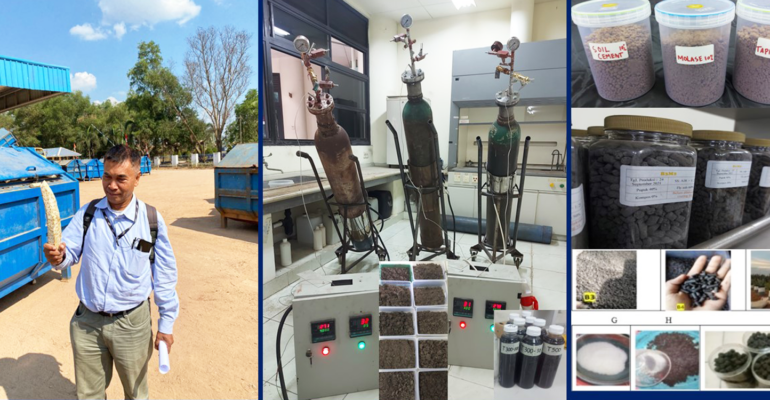Prof Herdhata Agusta: Fly Ash Waste Has the Potential to Become a Source of ‘Perfect Fertilizer’ Material

Prof Herdhata Agusta, the Dean of the Faculty of Agriculture at IPB University, stated that biomass and fly ash waste could become potential material sources through formula engineering. He revealed this during a press conference prior to his scientific oration via Zoom on Thursday (25/01).
According to him, this formula engineering could support integrated agricultural systems. On a national level, fly ash waste indirectly originating from agricultural activities reaches more than 8 million tons per year. This fly ash contains all the minerals necessary for plant growth.
“This potential provides a great opportunity for the utilization of fly ash waste as a useful mineral source in agricultural activities, creating a sustainable solution for waste management and supporting efficient plant growth,” he explained.
Prof Herdhata explained that biomass and biomass waste from agricultural activities contain lignin, cellulose, and hemicellulose. The lignin content can reach 12 to 35 percent of the total biomass of agricultural and forestry products. Moreover, with specific engineering, the decomposition process still has the potential to be accelerated.
“This process produces a large number of phenolate compounds, which can increase decomposition efficiency compared to the very slow natural process,” he said.
Prof Herdhata continued, by integrating mineral fertilizers, fly ash, compost, or other organic materials and biological agents in pellet formulations, this formula can be directed to become the ‘Perfect Fertilizer.’
“It has been proven that the addition of pellet binders and fly ash positively influences the physical and chemical fertility of the soil, as well as has a positive impact on plant growth and yield,” he stated.
Furthermore, according to Prof Herdhata, through this formula engineering, it is also possible to optimize biomass waste in agricultural production systems to be processed into pyrolysis solutions in anaerobic conditions.
“This brings benefits in reducing dependence on imported pesticides, improving sustainable agricultural functions, and, importantly, supporting a circular economic system,” said the Dean of the Faculty of Agriculture at IPB University. (dr) (IAAS/Hap)



